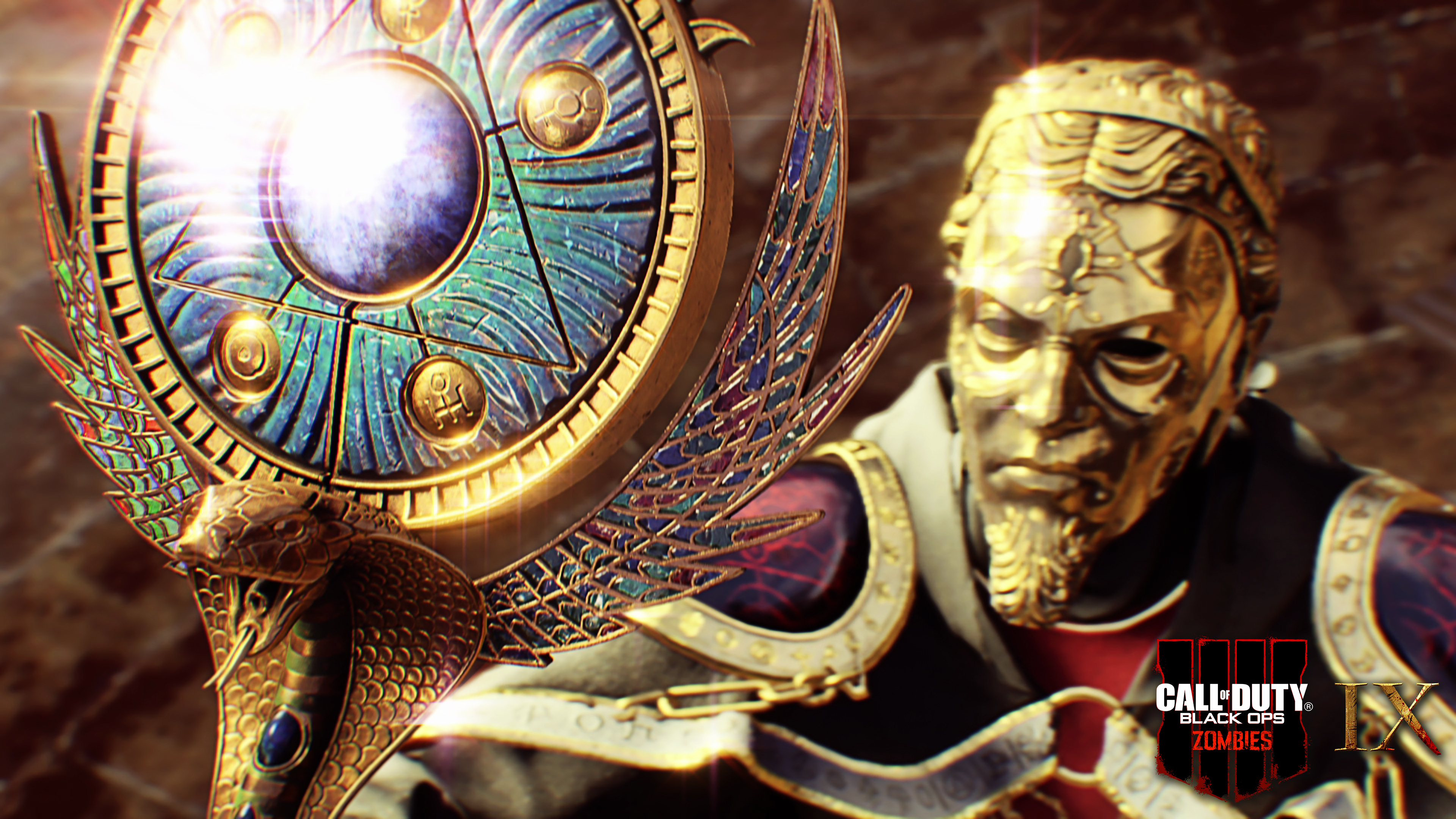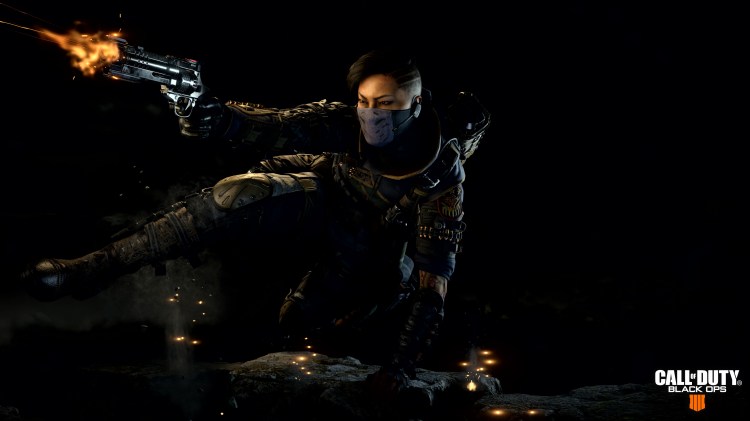GamesBeat: Are you making the rest more pliable now, then?
Kostich: No. If you think about multiplayer, it’s a very gritty, grounded experience, much more so than Black Ops III. That remains very true to Call of Duty in every way. Blackout is really a celebration that brings together our universes from all four games into one place. That’ll be grounded in a different way, in our history.
GamesBeat: Esports is hot these days. Did that enter the picture as far as how to design some of this multiplayer?
Kostich: First and foremost, we want to make sure people who just like to play online have fun with it. But the game does provide, I think, a new level of tactical depth, which will be great for esports. But the design goal is always to make sure it’s fun for everyone to jump online and play lone wolf if that’s what they want to do, or to play as a team. There’s a lot of stuff today where I think the team aspect will shine through more than ever, like communication, which I think will translate really well to the esports scene.
June 5th: The AI Audit in NYC
Join us next week in NYC to engage with top executive leaders, delving into strategies for auditing AI models to ensure fairness, optimal performance, and ethical compliance across diverse organizations. Secure your attendance for this exclusive invite-only event.
GamesBeat: It does seem that some of the—the importance of both insane skill and luck has been reduced here, I think. Grenades were always a lucky throw sort of thing. You’d spawn in Nuketown and instantly throw a grenade. Now you just can’t do that.
Kostitch: It’s always that fine balance, which the team is always trying to maintain. We want to reward skill and make it fun for everyone. They’re always exploring that line. I think we do a pretty good job of finding a good balance.
GamesBeat: Fortnite seems to have done better than PUBG because it’s more mass-market, more approachable. More light-hearted, maybe? I wonder if Blackout, in some ways, could be more appealing to a mass audience, and in some ways not.
Kostich: I think the benefit we have is that we have that history, from the entire Black Ops series. That’s going to bring a lot of variability to the experience and make it fun. We want to stay true to Black Ops, to where it’s been and what that means, but that alone is going to make it really interesting – the combination, who’s who, and what’s happening on the screen at any moment in time.
GamesBeat: One map doesn’t sound like as big an effort as maybe the Zombies side of things. Are there more maps coming for Blackout?
Kostitch: Most of these games now are largely played on one map. Fortnite is largely played on one map. We’re very focused on that, making sure this initial experience is everything it needs to be to make it awesome. Then we’ll see from there as far as what the opportunities for the mode are as we go forward.
GamesBeat: How about Zombies getting the Blackout treatment?
Kostitch: [laughs] You know, it might. Obviously today we’re just talking about what you saw.

Above: Call of Duty: Black Ops 4 Zombies.
GamesBeat: Fortnite has zombies, after all.
Kostich: Well, we talked about our Zombies characters being involved in this. I think there will be some interesting things happening in this mode over time.
GamesBeat: Why did moving to battle.net make sense for you this time?
Kostich: You may have heard a bit of it on the video. Back in the early days, we partnered with Blizzard when they were making Overwatch. They learned a lot from Treyarch in terms of shooter mechanics. It was natural for us to work with them. They have so much knowledge and history with the PC platform. Bringing our development chops along with what they do on the platform, and partnering with Beenox as well—we just wanted to provide a new level of commitment to the platform. We’re doing that this year in a big way.

Above: Dan Bunting and David Vonderhaar at Black Ops 4 reveal.
GamesBeat: Is it more about social communication features than just who has a lot of servers lined up?
Kostich: It’s all important: the social systems, the security systems, how we think about the dedicated server setup, everything for the PC platform. We’re combining best practices across the board to provide a better experience. Destiny did a great job with it last year and we’re looking forward to doing a great job with Call of Duty this year.
GamesBeat: That seems like a change as well. There didn’t seem to be as much cooperation across the Blizzard-Activision lines before.
Kostich: There was always cooperation. It’s funny. At the development level people are always talking. We’re always exchanging ideas. It happens organically. Now you’re just seeing this happen a bit more formally. We’re launching things on battle.net, for example. But that partnership has been great. They’re a great team over there and we love working with them.
GamesBeat: There’s been a lot more executive change than usual for Activision and Activision Blizzard lately. Has anything changed as far as how you guys operate?
Kostich: I don’t know if it’s necessarily been more than normal. On the Call of Duty team, I’ve been doing this almost 10 years now. We have a lot of stability on the Call of Duty team. We’ve been doing our thing. We’re still operating like we always have. It hasn’t really affected us at all.
Eric Hirshberg has been an awesome guy for me to work with over the years. He had an incredibly successful run as our CEO at Activision Publishing. But he left us in a great place. We’re in a great place moving forward and we have great plans ahead of us.
GamesBeat: Do you have another Call of Duty XP in mind?
Kostich: We’ll see. We’re focused on this event today right now. [laughs]


